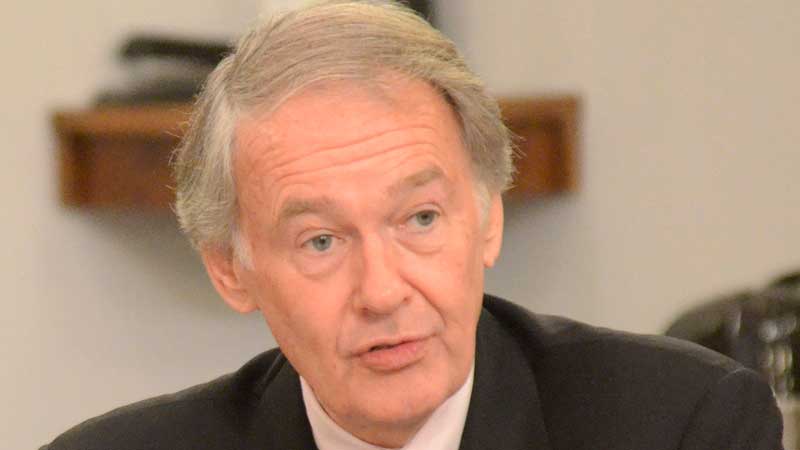Sen. Markey Pushes Back on White House Pandemic Database

The smarter way to stay on top of broadcasting and cable industry. Sign up below
You are now subscribed
Your newsletter sign-up was successful
Sen. Ed Markey (D-Mass.) is taking a "don't trust but verify" approach to reports of a new COVID-19 tracking system.
Markey spoke out Wednesday (April 8) following reports that the Trump Administration was looking into creating a coronavirus "surveillance" system using a database of potentially sensitive information.
Markey expressed similar concerns about Google's pandemic-related population movement database.
Markey says the current administration has given him no confidence that such a White House-led database would not undermine privacy rights.
Heightened surveillance in response to a crisis is a bit of a sore point with Democrats after the Bush Administration, with the help of Congress, ramped-up surveillance tools in the wake of 9/11. Tracking population movement by the White House also raises issues about how else tracking might be used, against immigrants for example.
"In moments of crisis like this, we should not simply accept the declarations by some in power who will tell us that we have to stray from the guiding principles and civil liberties that make us who we are," said Markey. "They are wrong. We do not have to forgo all privacy in a pandemic nor watch a surveillance state take root. While we should certainly use technological innovations and evidence-driven collaborations to combat the on-going coronavirus crisis, we must also reject proposals and policies that promise harmful invasions of privacy."
Markey said he would be pressing the White House for more details, but it sounds like it will take a lot of convincing if the Administration does create such a database.
The smarter way to stay on top of broadcasting and cable industry. Sign up below
Contributing editor John Eggerton has been an editor and/or writer on media regulation, legislation and policy for over four decades, including covering the FCC, FTC, Congress, the major media trade associations, and the federal courts. In addition to Multichannel News and Broadcasting + Cable, his work has appeared in Radio World, TV Technology, TV Fax, This Week in Consumer Electronics, Variety and the Encyclopedia Britannica.

